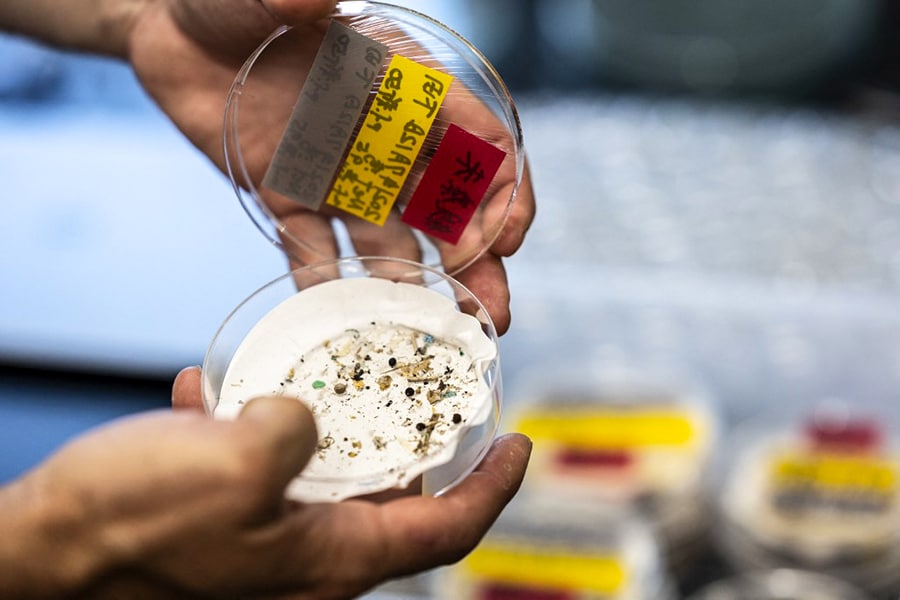
Microplastics have entered the human bloodstream
The tiny pieces of mostly invisible plastic have already been found almost everywhere else on Earth, from the deepest oceans to the highest mountains as well as in the air, soil and food chain
 This photo taken on October 14, 2021 shows microplastics in sediment samples collected by a "Smith-McIntyre" grab machine in the sea, at Japanese marine-station network Jambio's laboratory in Shimoda, Shizuoka prefecture. Image: Charly TRIBALLEAU / AFP
This photo taken on October 14, 2021 shows microplastics in sediment samples collected by a "Smith-McIntyre" grab machine in the sea, at Japanese marine-station network Jambio's laboratory in Shimoda, Shizuoka prefecture. Image: Charly TRIBALLEAU / AFP
Scientists have discovered microplastics in human blood for the first time, warning that the ubiquitous particles could also be making their way into organs. The tiny pieces of mostly invisible plastic have already been found almost everywhere else on Earth, from the deepest oceans to the highest mountains as well as in the air, soil and food chain.
A Dutch study published in the Environment International journal on Thursday examined blood samples from 22 anonymous, healthy volunteers and found microplastics in nearly 80 percent of them.
Half of the blood samples showed traces of PET plastic, widely used to make drink bottles, while more than a third had polystyrene, used for disposable food containers and many other products.
"This is the first time we have actually been able to detect and quantify" such microplastics in human blood, said Dick Vethaak, an ecotoxicologist at Vrije Universiteit Amsterdam.
"This is proof that we have plastics in our body -- and we shouldn't," he told AFP, calling for further research to investigate how it could be impacting health.







